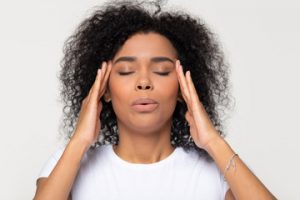Acknowledging Grief during COVID-19

The loss that we are all feeling right now is profound. It is okay to grieve the loss of what last month was, this week is, and next month was to be. We are all imperfect beings. We have all suffered losses. We are all vulnerable.
We have the chance to change that feeling.
Right now, there is a common darkness. We can find a light together, in this unusually unpredictable collective grief.
Let me help you understand three different types of grief you might be relating to right now:
- Anticipatory grief – This can be described as the intense sadness that sits with you before a likely event takes place (such as the foreseen the loss of a family member who is very unwell). Anticipatory grief can be as intense or more intense than the actual pain than when the event happens.
- Disenfranchised grief – This occurs when our own intense grief feels downplayed by others or the world in general. For example: if you feel the intense negative sadness and emptiness connected to Coronavirus, and at the same time, others around you believe that you are overreacting and diminishing your feelings around it.
- Ambiguous grief – the overall sadness and emptiness we feel, which can be described as a ‘general malaise’. At times, this can be when we see that what is happening is happening to all humanity in the world. This collective grief can be feeling sad for the planet and our fellow human beings.
Using a two-step process, and elements of acceptance and commitment therapy (ACT), we can work together to lessen some of this pain and discomfort.
* First, we acknowledge the losses, and second, we find ways to commit to a more positive mindset. *
1. Acknowledge the losses you identify with
a. Identify the losses you are feeling right now…
- Loss of certainty
- Loss of future plans
- Loss of structure and routine
- Loss of boundaries between home and work life
- Loss of sense of security
- Loss of social connection
- Loss of community
- Loss of in-person social gatherings
- Loss of some connection to faith
- Loss of job or income
- Loss of health
- Loss of freedom
- Loss of optimism and hope
b. Past loss or grief coming to the surface
You might be wondering why this time feels especially challenging. While we are grieving the loss of one or more of those listed above, it is important to remember that all current loss can trigger loss from the past (especially that which is buried or unresolved). This is often referred to as ‘cumulative grief’. This can happen when:
- We do not have the time we need to process what just happened before another loss occurs
- We feel overwhelmed, we avoid dealing with ‘hard feelings’ at the time, and ‘save it for later’
- All these toxins from the past bubble up and come to the surface
- Example: I lost my mother last year, I have shifted to ‘doing mode’ (highly effective with day-to-day activities), and
- To process past losses, we have to go back to that place of darkness and experience that suffering and pain
- Today, we might feel unprepared to deal with COVID-19 in general, in addition to all of the old losses that are coming up
- We don’t have the time we need before another loss occurs we end up overwhelmed by these multiple losses and unable to give them the attention they need.
When we are overwhelmed, our mind typically reverts to one of the most common defense mechanisms: avoidance. Though avoidance, denial, and shock may seem like a really bad thing (and it can be if it is never resolved), it can be our body’s way of keeping us functioning in the short term. Sometimes, it was the best way we were mentally and physically able to deal with it at the time of the event. What will be important for us, as losses accumulate, is that we have an awareness of the effort that we must begin working toward, facing reality of the loss. Unfortunately, this avoidance cannot continue indefinitely.
2. Let’s commit to change, and move to a more positive mindset.
Right now, this world is not the same – so how can we make it better? We realize we have not been prepared, and that we need to be more prepared in future. We can grieve the loss of the old unprepared world, and help to develop a new, prepared, more grateful world. My challenge for you is to reflect on these questions:
- What value are we discovering?
- What priorities have shifted?
- What new or existing relationships have you built or rekindled?
- What are we able to see that was unclear or blinded before?
- Who depends on you and why?
- Whom do you depend on and why?
- How do you take care of yourself?
- How do you provide for yourself and your family?
- What opportunities have you created for yourself?
- What new ways of living have you embraced?
- What are you grateful for?
- What do you love doing?
Elizabeth Lesser’s book titled ‘Broken Open’ focuses on a similar theme – how we have the ability to make the choice to be broken down and defeated or broken open and transformed. Lesser draws on different stores of ordinary people who ‘fell and got back up’, as well as some helpful traditions to help us learn ways to grow from difficult times. In light of past challenges you are trying to understand, or current ones you are experiencing, we hope this is helpful to you.
Activity for Processing Grief
I learned a valuable tool from a seminar I attended with Doug Smith, a specialist with years of teaching about grief and loss. Doug introduced a creative and practical tool we can use to process complex grief:
Materials needed: hammer AND small clay pot AND large sealable plastic bag (ziploc) AND glue gun AND marker or paints.
(If you do not have a pot and would like to do this activity, Doug suggested that a candle might have the same effect)
- Place the clay pot in a large sealable plastic bag, and firmly seal it
- Take the sealed bag outside. Bring the hammer.
- Use the hammer to break the clay pot/ candle (healthy form of processing anger)
- Bring the bag inside, and empty the pieces onto a table
- Each of these pieces represent all of the smaller losses that the larger loss contains
- Use a marker or paint to draw images or words that symbolize the aspect of yourself/ your life you have lost.
- Use a glue gun to re-attach all of the pieces, in whatever way you like.
The idea this activity brings is to be able to rebuild structure out of loss. The shape of the clay pot, or you, will have a different form; however, it is still comprised of all of the same pieces. We can make something beautiful out of brokenness.
Everything can change in a moment. Many times in life, we will have little control over our external environment and cannot do anything to change it. So, we can learn to manage what happens internally, or inside ourselves. The good news is: we can use what happens on the outside to change the way we function on the inside. We can make the choice in times that feel very defeating.
Written by Carly Clifton, Director & Registered Psychotherapist at Balanced Mind and Wellness Inc.
To learn more about how we can support you during this challenging time, please contact us at 647-961-9669 or info@balancedmindandwellness.com, or book online with us.


